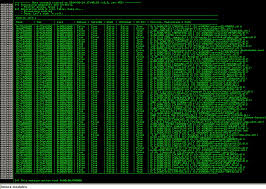记忆方法
记住“exploit”这个单词,可以将它分解为“ex”和“ploit”。想象“ex”是“出去”的意思,而“ploit”可以看作是“plot”(计划)的简化。将这两个部分结合起来,可以形成一个记忆画面:一个人(ex-出去)去实施一个秘密的计划(ploit)。这样的画面有助于记住单词的意思是“利用”或“剥削”。
以上内容由AI生成, 仅供参考和借鉴
中文词源
exploit 功绩,利用,剥削
ex-, 向外。-ploit, 卷,词源同imply, implicate. 即展开,结果,功绩。后在19世纪初由于法国空想社会主义者,尤其是圣西门用该词指剥削,压榨,使得这一词义广泛传播。
英语词源
- exploit
-
exploit: [14] Latin explicāre (source of English explicate and explicit) meant ‘unfold’. A Vulgar Latin descendant of its past participle was *explictum ‘something unfolded’, which passed into Old French as exploit or esplait. In the process, the original sense of ‘unfolding’ had developed through ‘bringing out, development’ and ‘advantage, success’ to ‘achievement’.
In the case of the English noun, it is the latter meaning which has survived, and in fact originally the verb too denoted ‘achieve, accomplish’. This seems to have died out in the 18th century, however, and when the verb reappears in the 19th century it is closer to the earlier ‘develop’ in meaning, particularly as applied to ‘getting the most out of’ natural resources. The modern derogatory sense ‘use for one’s own selfish ends’ emerged from this.
=> explicit, fold, ply - exploit (n.)
- late 14c., "outcome of an action," from Old French esploit "a carrying out; achievement, result; gain, advantage" (12c., Modern French exploit), a very common word, used in senses of "action, deed, profit, achievement," from Latin explicitum "a thing settled, ended, or displayed," noun use of neuter of explicitus, past participle of explicare "unfold, unroll, disentangle" (see explicit).
Meaning "feat, achievement" is c. 1400. Sense evolution is from "unfolding" to "bringing out" to "having advantage" to "achievement." Related: Exploits. - exploit (v.)
- c. 1400, espleiten, esploiten "to accomplish, achieve, fulfill," from Old French esploitier, espleiter "carry out, perform, accomplish," from esploit (see exploit (n.)). The sense of "use selfishly" first recorded 1838, from a sense development in French perhaps from use of the word with reference to mines, etc. (compare exploitation). Related: Exploited; exploiting.
权威例句
- 1. I even began to exploit him in subtle ways.
- 我甚至开始巧妙地利用他。
- 2. What the media should not do is to exploit people's natural fears.
- 媒体不应该利用人们天生的恐惧心理。
- 3. Cary is hoping to exploit new opportunities in Europe.
- 卡里希望好好利用欧洲的新机遇。
- 4. You'll need a good aerial to exploit the radio's performance.
- 你需要弄个好天线来发挥广播的性能。
- 5. Many countries exploit oil under the sea.
- 许多国家在海底开采石油.

